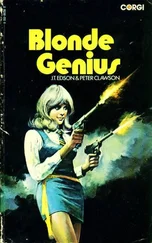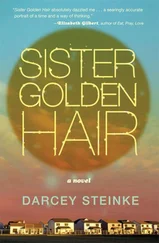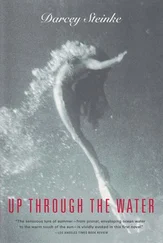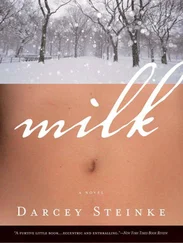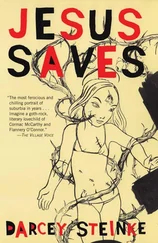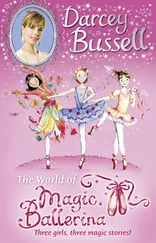A man in a white Ford by the pay phones kept saying, “Hey, skinny. Hey, skinny.” I scanned him quickly. He wore a Caribbean shirt open to show his chest hairs and a slender gold chain. He whistled, but I still wouldn't turn. “Your pussy stinks,” he said as I walked away. “I can smell it from here.” He laughed like he really thought he was funny. I hurried past his headlights with decals of Jesus, past a wall of graffiti tags and a silent brick factory. Through empty window frames I could see figures sitting on mattresses spread over the floor.
Pig's house was covered with vines. Hers was a stone Victorian, impressive still with the cherubic faces on every cornice. The gutter loosened and slumped, jammed now with the sharp leaves of the lemon tree. Paint chips blew off like snow in every wind. And the flower boxes of silk irises had paled in the rain. Every other house on her street had been demolished, the earth turned over, the ground pockmarked with deep filthy puddles. Beyond the mud, the houses were boarded up, adjacent lots filled with trash and sofas swollen with rats. The path to the door was marked with chunks of slate. Burrs stuck to my pants as I passed. Inside I paused to rest, picking off the burrs, letting my eyes adjust to the cooler dark air. On one side, the dining room, which always had a scent of rose petals and chamomile tea. Here was a long walnut table and strange paintings of stylized factory workers in a maze of equipment and smoke. Madam Pig had her garnet glass collection displayed, hundreds of red plates, mugs, goblets, salt shakers, candle holders, gravy dishes and ashtrays. With the curtains drawn they seemed demure. But on the nights Pig lit her candles, the glass sent candied light every which way. The living room door was shut, but I could hear the grandfather clock behind the velvet couch.
“Is that you, Jesse?” Madam Pig yelled from the kitchen.
“It's me!” I answered, walking the hall toward her voice. Along the wall hung pastel portraits of Madam Pig's only child, Madison. The girl had shell-white skin and blond hair. It might be her paleness or that there were ten portraits on each side, but they always seemed to glow and animate like a film clip.
Pig sat at the round table in the kitchen eating cold raspberry soup from a bowl and drinking red wine. She looked well today, but with her bulldog face and strange red shade of bouffant hair, she was always a spectacle. Since Pig never left the house I knew her flush could not be from exercise, but a particularly lucky application of make-up. Today her eyebrows were superbly drawn.
“I love cold soup. It goes so well on these days when I'm the last person in the world.” Pig stared into her soup as if something she lost years ago would surface any minute.
“Soup's good,” I said, never knowing if her exclamatory statements were meant to be answered.
She looked up. “Jesse,” she said quickly, “did you bring some mangoes?”
I shook my head. “But I can go look for some.” Pig looked at me like I was crazy, her eyes wide. “Why would you want to go out there?” She gestured to the window and the mud lot.
“I meant I'd go to the store to look.” It was always hard for me to know what to say to Pig. Besides, whatever I answered never seemed to pertain to her reply. “No,” she muttered, “no, no, no. .”
I sat in an overstuffed chair. I loved this room. The wallpaper, a big bawdy pattern of magnolias drenched in hazy moonlight. Pig sat across from me at the round cherry table with mismatched chairs. At first I thought the upholstered chairs looked strange in the kitchen, until I realized the house's inner logic of abundance and how silly Madam Pig would look in a spindly chair.
I watched her elegantly spoon the soup into her mouth and flip the pages of an old magazine; there were stacks all over the table. She read them, some even twenty-five years old, like it was new information.
“You look well,” I said.
At this she raised her head, gave me a look that showed her disapproval of innocuous pleasantries, plunked her spoon into the bowl and said suspiciously, “Who told you that you have to do what you don't want?” I could tell by the set of her chin that she had been thinking of this all weekend. “Your mother?” Pig asked. “It's a shame what mothers do. What they really mean is that women get stronger by the bad things that happen to them. Not that you have to make bad things happen to you, and more importantly, pretend to like situations that you don't.”
The last phrase made my eyes well, and Madam Pig said, “Oh honey, did he leave you again?”
I nodded my head and wiped my eyes, staring at the glass bowl filled with oranges in the table's center. I told Pig how he had gone to get cigarettes and not come home all night. Then how I searched for him and spied while he had spoken with the little man.
She interrupted me to say thoughtfully that she didn't hate her former husband, “I only wish he never again treats anyone like a cow.” She had a vacant look then, like she had to go inside and think of what she said.
I felt uncomfortable in the silence and stared at her magazine, one picture of an astronaut floating unconnected to surface or spaceship — he seemed threatening with the black mask of his helmet twinkling.
When she saw me staring she said, “It's amazing what you can learn from watching someone.”
“I don't know that I learned anything from watching Bell.”
“Once you see your lover doing something you could never discuss with him then sooner or later you will leave.”
I thought how once at a bar Bell was mesmerized by a pair of drag queens in their long black wigs, go-go boots and miniskirts.
“Can't you just start up with someone else?” she asked sympathetically. “Oh I know I'm always rallying for it, but adultery is so much better when you have an ax to grind.”
I said, “Bell is the one I have chosen,” and the sound of my voice frightened me. It was firm and inarguable like a born-again Christian.
Pig pushed her soup dish back. “Well,” she said, “there is nothing I can do if you won't listen to reason. But I do want to tell you one story. It happened to an old friend of mine. She was a conservative woman, but lovely with kitty-cat blue eyes and peanut-butter-colored hair. She was queen of the flower festival and decided at twenty, though she had her choice of many, to marry a minister. He told her that they would do good works and always have a hundred dollars in their pockets. Sometimes when they were alone she sensed something cruel in his profile, something soft and perverse around his mouth. But they married anyway, had several good years, then a slew of horrible ones. She got fat like me and started to act mean and arrogant and before she knew it he had the smell of other women on him and when she reached for him in bed he'd say, ‘Don't embarrass yourself.’ “
I felt my eyes get warm and milky. “That's my mother's story,” I said to Pig. “I told you that.”
“Oh,” she said, “no wonder in my mind it seemed to pertain to you.” She didn't look at me. Her cheeks got pink under the heavy spots of rouge. She rose awkwardly, her grand body shivering, shifting like a yacht pulling out of dock.
“Time for my bath,” she said.
IN THE LAUNDRY ROOM OFF THE KITCHEN THE WASHER WAS A slick erotic white. I loaded Pig's colossal slips and bras into the washing machine. Upstairs the water was still beating into the tub. I could hear the sloshing and squeezy echo of Pig settling in, her thighs relaxing heavily against the sides, her back sinking low against the porcelain. Pig's underwear, all in pastel colors and the size of office trash bags, reminded me of the style I wore in grade school. Why did fat embarrass me? Fat people couldn't hide their weakness or sorrow like most could. I used to wake at night and pull a pillow to my stomach, worrying about getting fat. But as I loaded the washer with her oversized dresses, Pig didn't seem tragic but abundant. I almost felt a comfort in her hugeness.
Читать дальше


